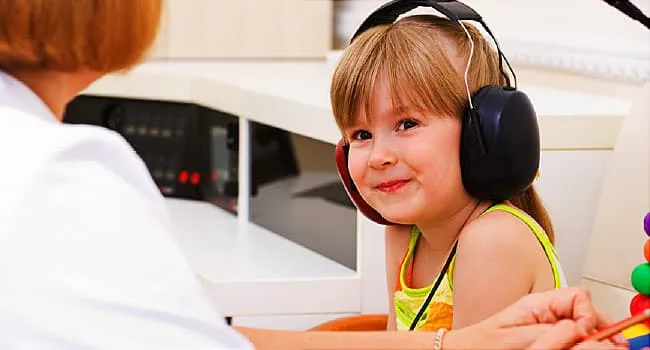
Hearing loss poses an extra challenge for growing children. But it doesn’t have to hold them back from learning and communicating. With the right treatment and services, your child can learn all the skills and reach the same milestones as other kids her age.
Here’s what you can do to help.
Early treatment is key for children with hearing loss.
“Babies’ brains develop quickly, and it’s important to stimulate those sound pathways in the brain as soon as possible,” says Dale Amanda Tylor, MD, an ear, nose, and throat doctor at Washington Township Medical Foundation in Fremont, CA. “Children who are exposed to sounds earlier are more likely to develop along the same path as others their age.”
Most children get hearing aids or other devices like cochlear implants. They’re electronic devices that go inside the inner ear to help the brain process sounds.
It’s never too early to start these treatments. Most states test babies for hearing loss shortly after birth. That means they can get fitted for hearing aids at just a few weeks old. Ask your child’s doctor to help you pick a certified pediatric audiologist who can help you choose the best treatment.
“Even kids with profound hearing loss can catch up with their peers by age 5 or 6 if they have cochlear implants by age 1 or 2,” Tylor says.
About 95% of parents of children with hearing loss don’t have the condition themselves. So they have a lot to learn about living with and treating it. An early intervention program helps you coordinate all the services your child will need. Babies with hearing loss should get in one as soon as possible.
You can find a program through your local public school or hospital. You’ll work with hearing specialists, like audiologists and speech-language pathologists, to come up with an “individualized family service plan” (IFSP). Early intervention also provides support for families and can teach you ways to help your child stay on track with language and speech.
It’s easier to help your child if you have help, too.
“Coping with hearing loss is a lot to handle at first, so families need extra emotional support,” says K. Todd Houston, PhD, an associate professor of speech-language pathology at the University of Akron.
Some parents find counseling helpful. Others turn to support groups. Both let you connect with other families who are living with hearing loss. There are many online communities, or you can ask your doctor about groups in your area. The Alexander Graham Bell Association has a listing of chapters on its website and offers meet-ups and conferences for families.
“Many parents really enjoy the shared experience and validation of a support group,” Houston says.
Hearing sounds and speech from an early age will help your child learn language. Find simple ways to add them to the day:
Play games with your baby that teach imitation, like peekaboo, pat-a-cake, and the itsy bitsy spider. These teach your little one about taking turns when they talk with others.
Talk about the things you’re doing. For example, “We’re driving to grandma’s house,” or “Daddy is washing the dishes.”
Read to your child. Describe the pictures as you go. As your kid gets older, ask him to point to the pictures as you name them. Or ask him to name the pictures.
Sing songs together.
You know what’s best for her. If something in your plan isn’t working, let your care team know. They should work with you to meet the goals you’ve set. If not, look for specialists who will.
“Being involved with your child’s care is one of the best things you can do to help your child succeed,” Houston says. “So don’t be afraid to fight for what your child needs and to ask lots of questions along the way.”






